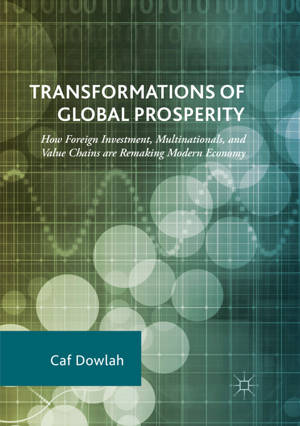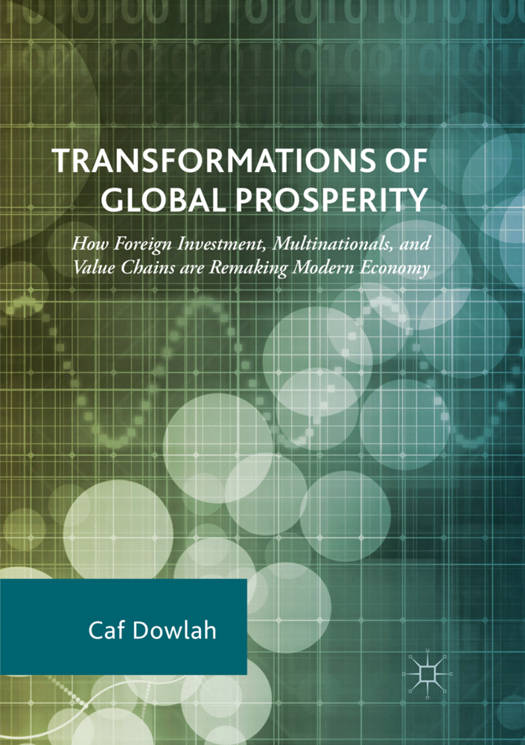
- Retrait gratuit dans votre magasin Club
- 7.000.000 titres dans notre catalogue
- Payer en toute sécurité
- Toujours un magasin près de chez vous
- Retrait gratuit dans votre magasin Club
- 7.000.0000 titres dans notre catalogue
- Payer en toute sécurité
- Toujours un magasin près de chez vous
Transformations of Global Prosperity
How Foreign Investment, Multinationals, and Value Chains Are Remaking Modern Economy
Caf DowlahDescription
This book presents an in-depth understanding of the transformation of modern economy in the twenty-first century by examining the interface and interplay of three key forces of contemporary global economy-Foreign Direct Investment (FDI), Multinational Enterprises (MNEs), and Global Value Chains (GVCs)-and how the emerging nexus of these forces has already ushered in revolutionary transformation in global production, investment, trade, and employment in recent decades.
A distinctive feature of the book is that it situates the contemporary GVC revolution-that envisages fragmentation and dispersion of production processes across the world based on competitive costs and quality-as a natural progression of the traditional FDIs-MNEs nexus, which emphasized internationalization of production and trade in search of profits, resources, markets, or cheap labour. Moreover, the book provides a comprehensive analysis, from historical, theoretical and empirical perspectives, of both traditional FDIs-MNEs Nexus that dominated the world economy until the end of the twentieth century, and of the New Nexus of FDIs-MNEs-GVCs, that has opened grand opportunities for global prosperity by providing short-cut paths to industrialization and economic growth for less developed countries.As an exemplar, the book examines GVCs in automobiles-a medium-tech manufacturing activity with numerous backward and forward linkages-to demonstrate how the FDI-MNE-GVC interface in this sector has wedged industrialization, employment, and trade in six emerging countries/regions-Brazil, Central and Eastern Europe, China, India, Mexico and Thailand.
Spécifications
Parties prenantes
- Auteur(s) :
- Editeur:
Contenu
- Nombre de pages :
- 408
- Langue:
- Anglais
Caractéristiques
- EAN:
- 9783030100148
- Date de parution :
- 26-01-19
- Format:
- Livre broché
- Format numérique:
- Trade paperback (VS)
- Dimensions :
- 148 mm x 210 mm
- Poids :
- 517 g

Les avis
Nous publions uniquement les avis qui respectent les conditions requises. Consultez nos conditions pour les avis.






